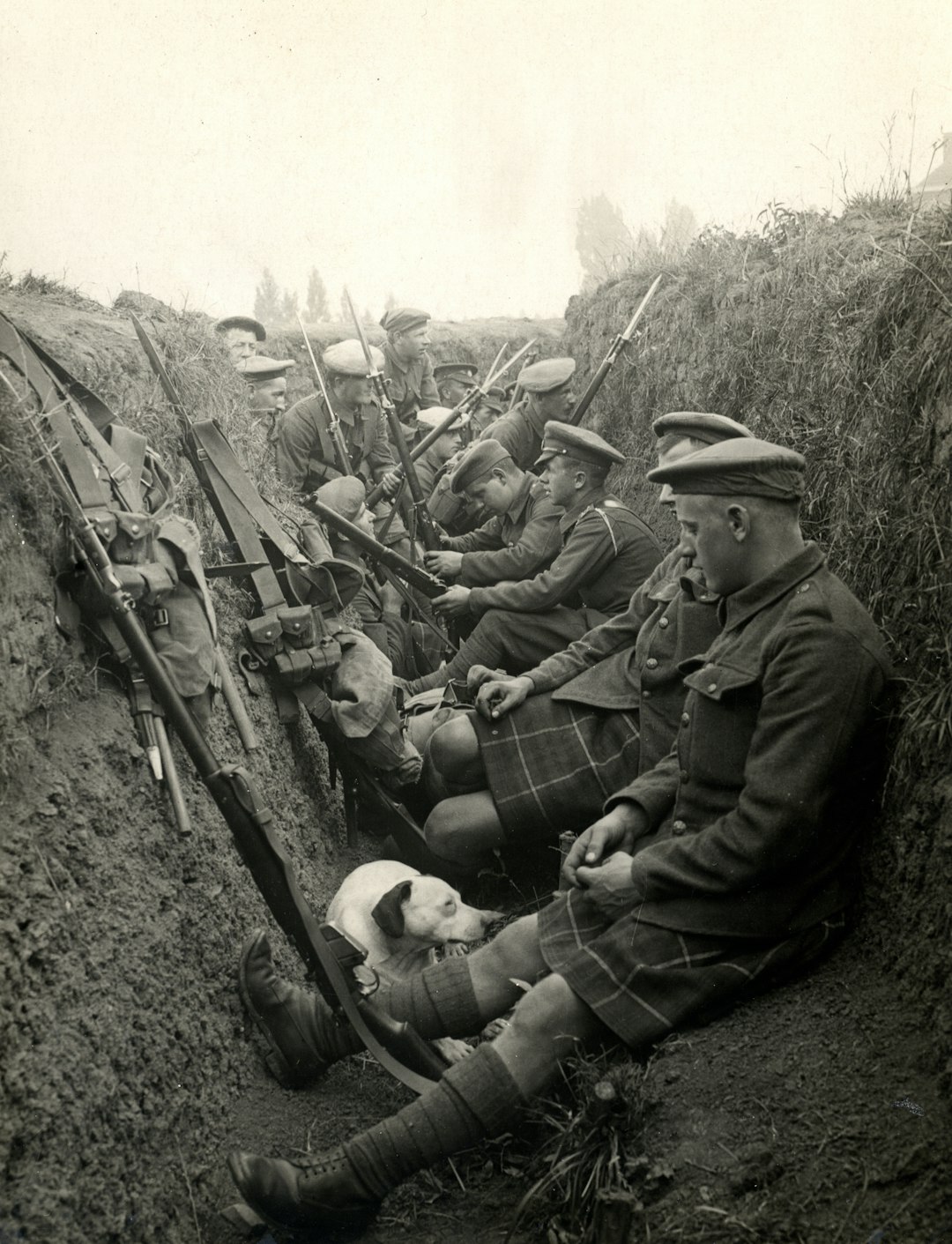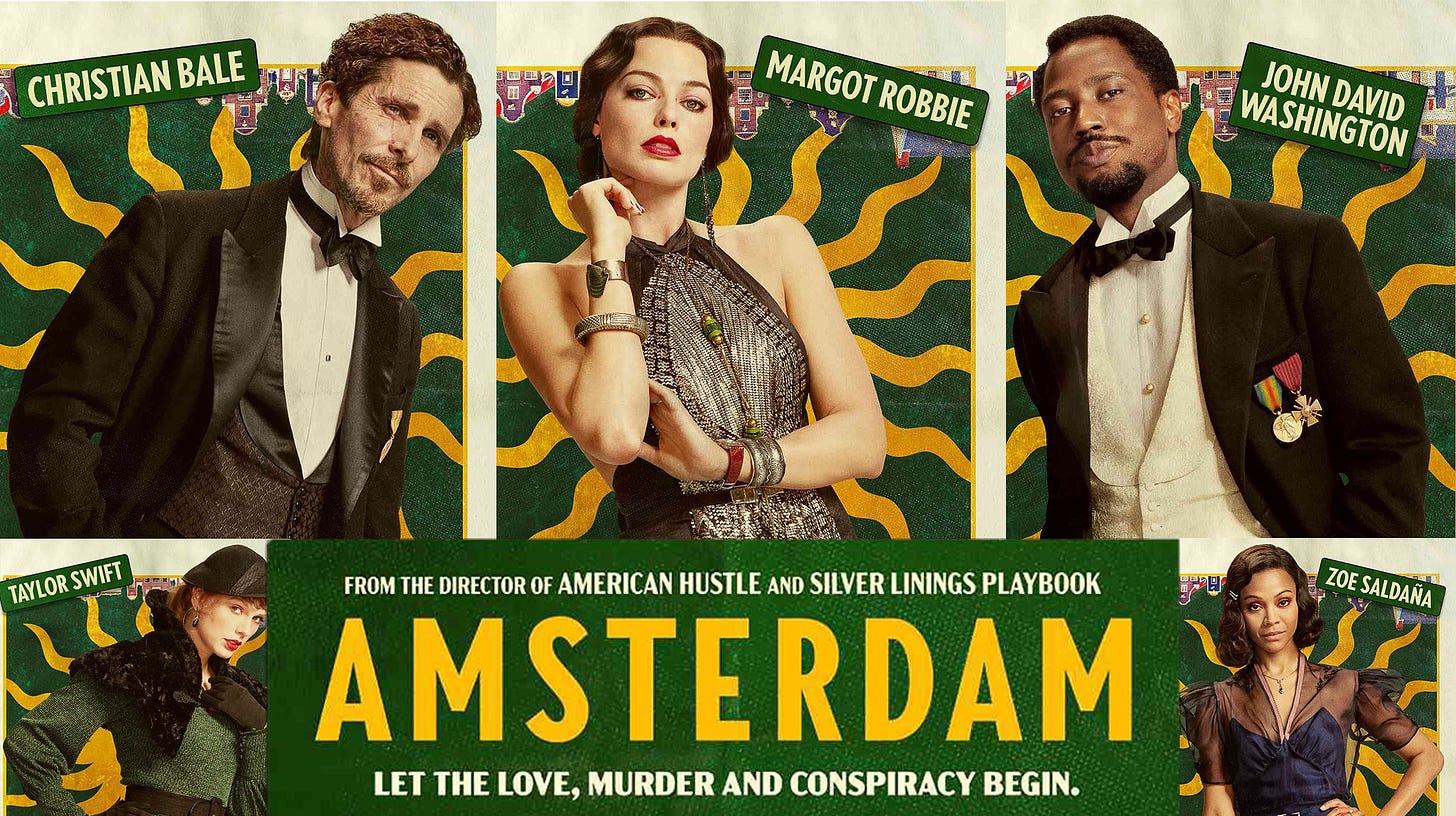We Are In A Narrative War
We Are In A Narrative War
The stakes are high and you are not a bystander. Everyone has a role to play
“So here again, we have a choice. We can look at the narrative that’s being pushed at us, uphold it and support it, and ultimately bring that narrative into a reality that becomes our new paradigm. Or we can question that narrative. We can honestly look to understand that narrative and see if that narrative affects our reality. Then, lastly, we can choose which narrative becomes our reality.”

As I’m putting the finishing touches on my book, I have to go back and reference sources I’ve cited. As I’m citing sources, I’m starting to realize that it’s challenging to find the same sources I referenced two years ago.
Some of those sources were very distinct, and the impact was profound when I first came across the information for the first time. And since those moments were so deep, I vividly recall those experiences. But as I went through these exercises, I realized that these references have changed.
For example, I was looking up Sir. Richard Owen and I couldn’t find the original Wikipedia page because contributors were reworking it. Instead, I found that specific section I referenced, and others, being discussed as if they should be rearranged. Wikipedia is writer-supported, so there’s no shock that information is being removed, but what’s interesting is what information is being removed.
One of the other examples I previously referenced was that of General Smedley Butler. As I was reviewing that section, I thought, “Man, if the majority of Americans knew his story, there’s no way they would still vote or trust the American system.” As I was reviewing his Wikipedia, which was also changing, I realized that a movie on his story was just released in 2022 called Amsterdam.
After reviewing the movie’s cast, which starred Christian Bale, Margo Robbie, John David Washington, Chris Rock, and Zoe Saldana, I thought, “Wow, this is a star-studded cast. How come I haven’t heard or seen this movie?” So I decided to watch it, and after watching it, I could see how it flopped. There were great actors and performances, but the overall story just wasn’t there.
I’d argue that it flopped because it failed to touch on the heart of the matter. It greatly sidestepped this because even though many of the events were factual, for one, they used fake names. The movie did include General Smedly Butler, but it called him General Dillenbeck. The film introduces you to the reality of what the General did but disguises it as humor with fake names, so you don’t know what occurred or its impact. And so today, we’ll discuss General Butler’s story and the end of this article. But that was how my day went yesterday.
And then Israel happened.
I only heard about Israel because it was all over substack. Seeing that I don’t watch the news, I just kept going about my book, but more and more, the topic began to spread more and more. That’s all everyone was commenting about. I stayed focused on “my world” and this book (which I’m so glad I did because we might go live this week :)), but I saw a substack title that finally got my attention: Today is Isarel’s 9/11.
The article was 3 minutes, so I read it, but after going to the comments, I could see that a lot of attention was being given to this attack. I want to point out that any death of human life is always a sad event and should never occur, but if anyone watches media, they tend to grieve for one end more than others. By removing yourself from the media, you can see how any life is sacred. I’m glad I was able to get my book done before giving this my attention because once I shifted gears and started reading about the Hamas attack, I began to ask myself these questions:
How do we know this isn’t a false flag attack?
Just as America funded Al-Qaeda, how do we know Hamas isn’t supported?
All we’re seeing are videos. In today’s deep-fake world, can we trust these?
Isn’t this part of the Zionist plan of Lord Rothschild from World War One?
And then it hit me: is this a narrative war?
On substack, there are two kinds of individuals: those who question the prevailing narrative and those who support it. We all despise the MSM and know that “they’re lying,” but when it comes to this topic, everyone’s watching the MSM. I ask myself, “So, they lie about this but not that?”
As I thought more and more about this, I realized that, just like 9/11, 22 years ago, 10/7 is also a synchronistic day. I recorded my share of synchronicities yesterday, which included making significant strides on my book and watching that movie, and which all should do (record your synchronicities - as Carl Jung did as well). So, if 10/7 with Israel is the new 9/11, what does that mean?
Does that mean that another war is on the horizon? Does that mean that this was another false flag event? With 9/11, we know that thousands of live individuals reported bombs, but billions saw planes. Is that similar to what happened here?
I’d wager to say yes to all of those, and again, it’s always sad when a life is lost. But the reality of this journey is that we have a choice. We have two options: either uphold an existing narrative or create a new one. We can say that these lives that were lost are more important than those lives that were lost. We can say that we need to do this, or we can say that we need to do that. Events like these give us opportunities for new narratives to be formed, and what we’ve seen is that narratives ultimately build realities, which ultimately build paradigms. It’s a self-building circle.
Recommended Reading: The Power of Narratives
Recommended Reading: A Paradigm Shift Is Occurring
So here again, we have a choice. We can look at the narrative that’s being pushed at us, uphold it and support it, and ultimately bring that narrative into a reality that becomes our new paradigm. Or we can question that narrative. We can honestly look to understand that narrative and see if that narrative affects our reality. Then, lastly, we can choose which narrative becomes our reality.
These events ultimately create a new reality, and narratives start that reality. An event occurs, and we see the beginning of that new narrative begin to form. But before we choose which narrative to create, I’d like to provide you with an excerpt from my book on, at the time of his death, the most decorated Marine in US History, who wrote the book War is a Racket, who may have inspired the hero Captain America, General Smedley Butler.
The Business Plot
So far, it appears that yes, the rich and powerful billionaires influence the world, and yes, they donate a generous amount to organizations that fund their ideologies. However, anyone can justify that none of these things are disastrous at their core.
To illustrate the power of the rich, let's delve into the story of Smedley Butler. A highly decorated Major General and senior officer of the United States Marine Corps, Butler fought in several historic conflicts. His remarkable achievements include receiving 16 medals, five for heroism, and being one of the very few individuals to have been awarded the Medal of Honor twice. Butler was a man of great integrity, always prioritizing democracy for the American people.
In 1933, Butler found himself tangled in a conspiracy to overthrow the United States Government. This audacious plot, known as the Business Plot or the Wall Street Putsch, aimed to install a dictator in place of President Franklin D. Roosevelt. Butler revealed that wealthy businessmen were behind this scheme and intended to create a fascist veterans' organization, with Butler as its leader, to execute the coup d'état.
Butler's testimony before the United States House of Representatives Special Committee on Un-American Activities shed light on these revelations. Although no one was prosecuted, the committee's final report acknowledged the legitimacy of the overthrow attempts that were discussed, planned, and potentially executed if deemed necessary by the financial backers.
Initially, major news media outlets dismissed this incident as a hoax, with a misguided New York Times editorial fueling misinformation. However, perceptions shifted once the final report was issued. From Wikipedia, we read the following:
Retired Marine Corps Major General Smedley Butler asserted that wealthy businessmen were plotting to create a fascist veterans' organization with Butler as its leader and use it in a coup d'état to overthrow Roosevelt. In 1934, Butler testified under oath before the United States House of Representatives Special Committee on Un-American Activities (the "McCormack–Dickstein Committee") on these revelations. Although no one was prosecuted, the congressional committee final report said, "there is no question that these attempts were discussed, were planned, and might have been placed in execution when and if the financial backers deemed it expedient."
Early in the committee's gathering of testimony most major news media dismissed the plot, with a New York Times editorial falsely characterizing it as a "gigantic hoax". Reporting changed when the final report was issued.
These instances of wealthy individuals attempting to overthrow the government are not isolated. Understanding this reality is crucial as we strive to liberate ourselves from the invisible chains that bind us. Wealthy individuals with immense power and influence shape the world according to their desires, often prioritizing control over ethical considerations. Once we grasp this understanding, we can better comprehend the stronghold they have on us.
There’s a reason history is taught to us as children when we cannot do anything about it (see article on they would never do that) versus taught to us as adults, when we can do something about it.
With the Presidential Election around the corner, I recommended reading the following three articles to find out what you can do about this new paradigm on the horizon.
Recommended Reading: Why We Should Appreciate RFK and DeSantis
Recommended Reading: Why We Should Stop Voting In Presidential Elections
Recommended Reading: How To Live Your Best Life
Source: Unorthodoxy

Comments
Post a Comment